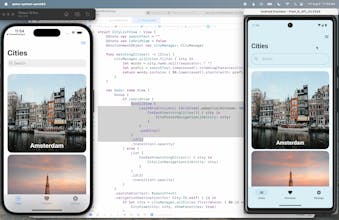
Skip
Cross-platform mobile app development without compromises
180 followers
Cross-platform mobile app development without compromises
180 followers
Skip brings Swift app development to Android. It is a tool that enables developers to use a single modern programming language (Swift) and first-class development environment (Xcode) to build genuinely native apps for both iOS and Android.









Skip
Hurrayy
Mailfox
Skip